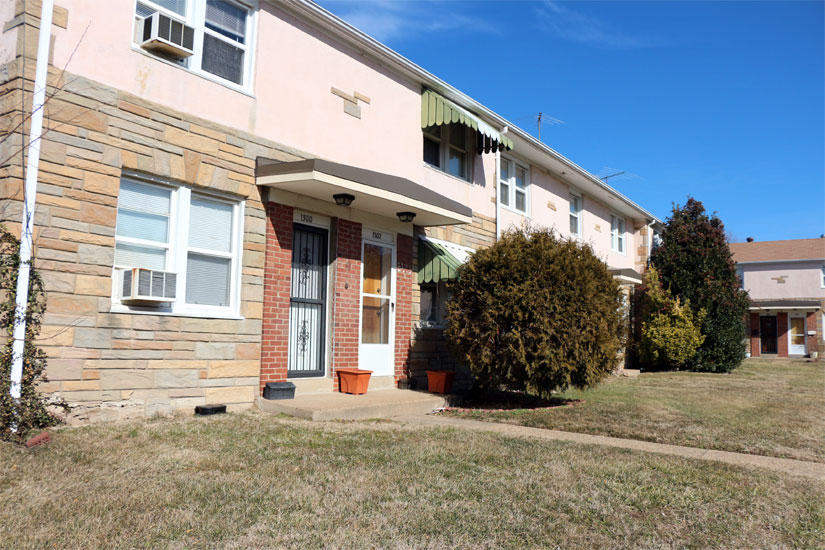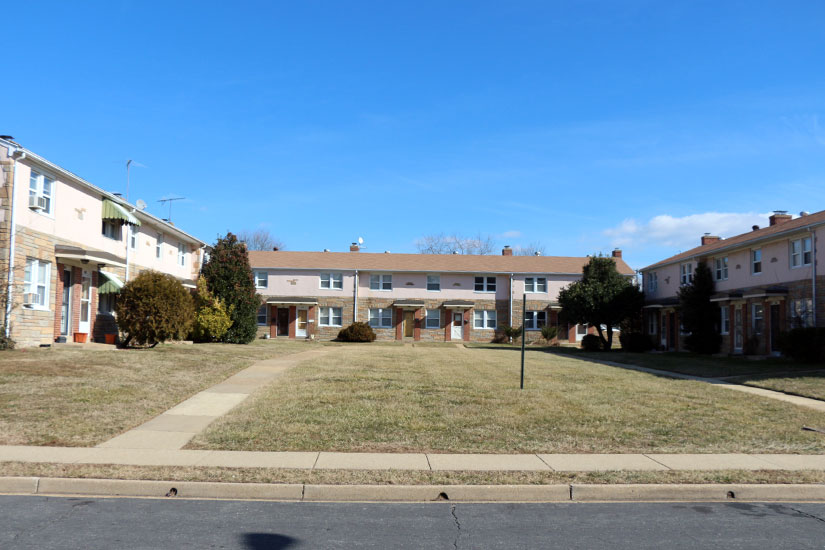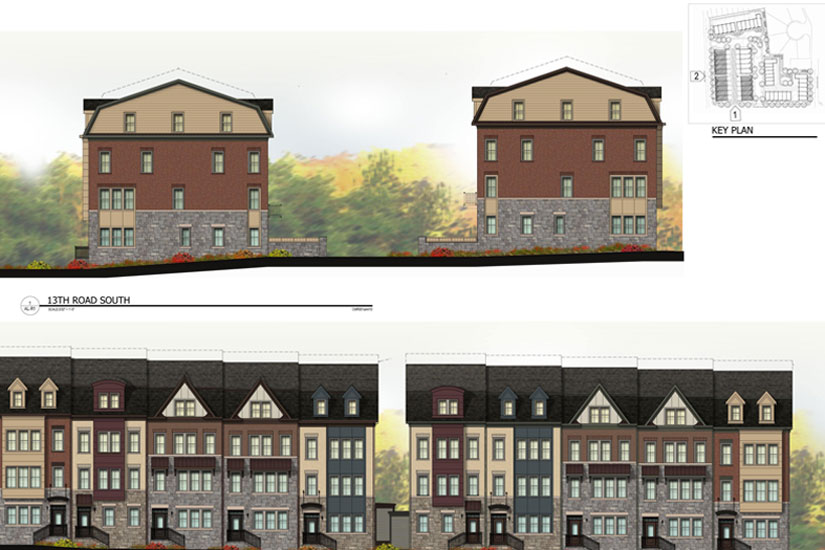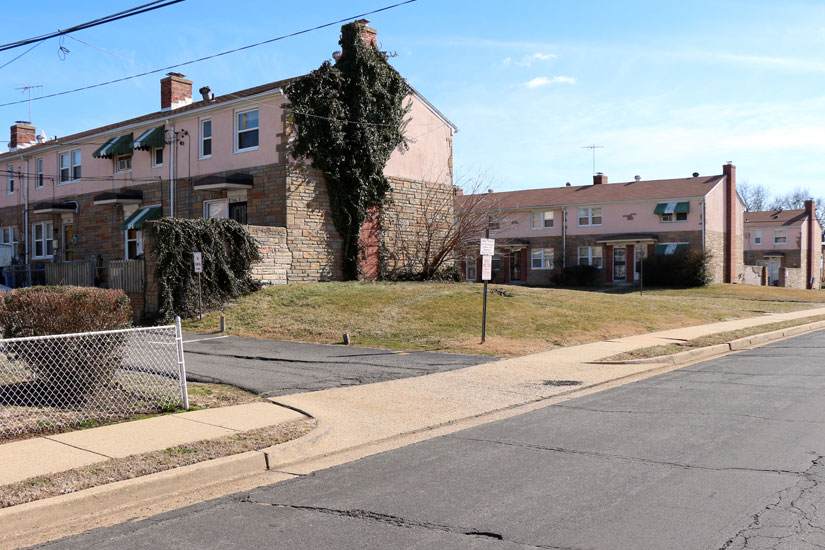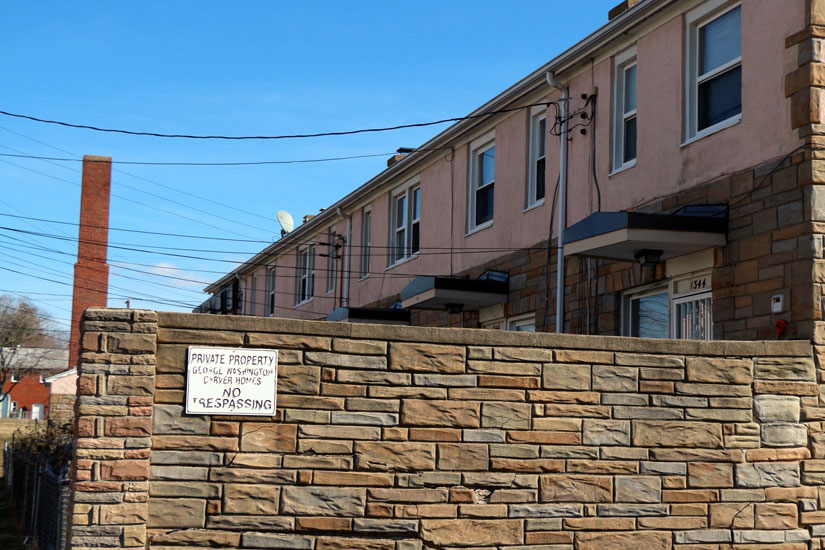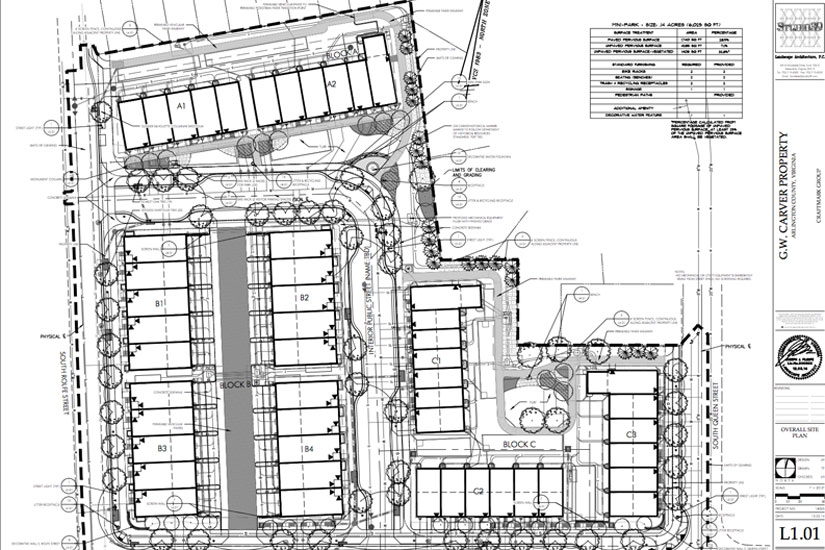(Updated at 5:25 p.m.) The last remaining homes built for African-Americans displaced by the construction of the Pentagon could soon be history.
The George Washington Carver Homes on S. Rolfe Street are in the process of being sold to a developer that plans on replacing them with 50 townhouses, including 23 duplexes. The Arlington County Board is expected to decide the proposal’s fate at its meeting later this month.
The Carver Homes are a collection of 44 garden apartments along S. Rolfe Street and 13th Road S. in Arlington View. The development is a co-operative, and the co-op board has an agreement to sell the property to Craftmark Homes pending approval of the redevelopment plans, according to county planning staff.
The apartments were built by the federal government in 1945 and designed by noted architect Albert I. Cassell, who had been the head of architecture at Howard University and designed much of the school’s northwest D.C. campus. County Historic Preservation Planner Rebeccah Ballo said as far as preservation staff are aware, they are the only buildings he designed in Arlington.
If they are redeveloped, the Carver Homes will join the former Dunbar Homes in Nauck as pieces of Arlington’s 20th century African-American history torn down for redevelopment.
“Fully understanding it is their right to sell and dispose of their property as they see fit, this is a loss,” Ballo told ARLnow.com. “This is a loss of cultural and architectural history.”
When the Pentagon, the Navy Annex and the surrounding network of roads were built during World War II, they replaced the neighborhoods East Arlington and Queen City. The areas had been occupied by African Americans, many of whom descended from Arlington’s Freedman’s Village, built for former slaves in 1863. The residents of East Arlington and Queen City were moved elsewhere, including the Dunbar and Carver Homes.
The residents of the Carver Homes bought the property from the government in 1949. Many of the apartments are still owned by the original residents or their families, Ballo wrote in her staff report for the Historical Affairs and Landmark Review Board.
Multiple attempts to reach the attorney representing the Carver Homes co-op board, Patricia Fettman, have gone unreturned. Fettman also represented the Dunbar Homes co-op board when they sold their property for $37 million 10 years ago, according to a Washington Post article at the time.
The Post’s article featured interviews of residents of the homes who didn’t want to sell. The author, Annie Gowen spoke to Dorothy Rich, at the time the co-op board’s president.
“Basically, we think the time has come to take the next step forward,” Rich told Gowen. Gowen wrote that Rich “declined to detail the discussions to sell, saying only ‘we won’t do anything without a vote and a majority of our homeowners.'”
The exterior of the houses are largely well-maintained, with pink-painted stucco and a pristinely mowed courtyard. The eight buildings sit on a 3.35-acre plot, an easy walk to the Air Force Memorial and less than a half-mile drive from I-395.
County staff attempted to have the homes listed on the National Register of Historic Places when they conducted a review of all potentially historic properties in the county, starting in 1997. They even filled out the application, but Ballo said after meetings with the co-op board and the surrounding community, “the nomination stopped.”
“There’s not a lot of information about what actually happened,” Ballo said, adding the designation would not have prevented the co-op board from profiting from a redevelopment. “There are thousands of properties on the National Register that are not protected. They get torn down all the time.”
If the townhouses are approved, a total of 73 residences would be built, six of which would be committed affordable units, and all of them would be for sale, according to planning staff. They are being proposed as a redevelopment under the Columbia Pike neighborhoods form-based code.
The redevelopment proposal will go before the Arlington Housing Commission Wednesday night and the Planning Commission on Thursday. County planning staff has not released a report on the proposal, but Urban Planner Matt Mattauszek, the project’s lead with the county Department of Community Planning, Housing and Development, said “we’re recommending it gets approved.”
To prepare for the development’s possible destruction, the Arlington Public Library and historic preservation staff are working on interviewing residents of the homes and the developer to build an oral history and potentially an exhibit around the historic project.
Despite those efforts, Ballo said she feels awareness is growing that some of Arlington’s demolitions are doing more harm than good. Arlington may not be Old Town Alexandria, but the county’s 20th century history is still vital because it has “its own unique and special story to tell.”
“At some point you have to start saving your 50- or 70-year-old buildings,” she said, “because if you don’t you’ll never have 200-year-old buildings.”


